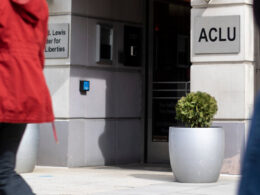(The Center Square) – Former President Donald Trump leads Vice President Kamala Harris by 3 points in the newest statewide polling of North Carolinians.
The consensus battleground state, sending electoral college votes to Republicans in 12 of the last 14 cycles dating to a Lyndon B. Johnson win in 1964, has been a prime rally location since before Harris became the Democrats’ nominee.
Raleigh was the first site visited by President Joe Biden after his infamous June 27 debate against Trump.
A rally by Harris this week is getting reset due to Debby, the former hurricane that is slowly moving up the Atlantic Seaboard closing out the week.
A state of emergency has been declared by Gov. Roy Cooper, with flooding expected.
Biden on July 21 abandoned seeking reelection, endorsed Harris, and no other candidate from the party emerged.
Ahead of the Aug. 19-22 Democratic National Convention, delegates by virtual roll call have made her their nominee.

Trump outpolled Harris 44%-41% among 714 likely voters sampled between July 31 and Aug. 3.
Respondents also made choices for independent Robert F. Kennedy (4%), Libertarian Chase Oliver (1%) and the Green Party’s Jill Stein (
The poll was conducted by Redfield & Wilton Strategies, sponsored by The Telegraph.
It has made 10 regular tabulations.
In other battleground states, Harris led Trump in Arizona 44%-43%, and was tied in Nevada at 40% and Wisconsin at 43%.
Trump, in addition to North Carolina, led Harris in Pennsylvania 46%-44%, Georgia 46%-44% and Michigan 42%-41%.
At time of polling, Harris was yet to name Minnesota Gov. Tim Walz as her running mate.

Harris led Trump in Minnesota 46%-41%.
North Carolina has 16 electoral college votes and is considered one of seven key battleground states representing 93 votes.
The others are Pennsylvania (19), Georgia (16), Michigan (15), Arizona (11), Wisconsin (10) and Nevada (six).
As it does consistently, the pollster asked respondents what would be “most important in determining how you vote” on Nov. 5.
The economy (38%) easily outdistanced abortion (15%), immigration (9%) and health care (7%).
The environment was next (4%) just behind don’t know (5%).
Clustered at just more than 2% or less were, respectively, coronavirus pandemic, housing, government spending, foreign policy and defense, election integrity and voter fraud, welfare, policing and crime, homelessness, education, taxation, transportation and infrastructure, and drug use and deaths.







